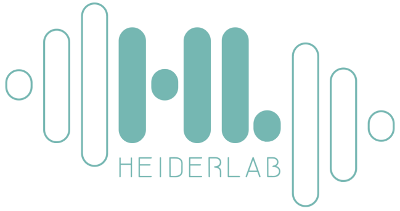CORona Drug InTEractions database
Identification of SARS-CoV-2 Cell Entry Inhibitors by Drug Repurposing Using in silico Structure-Based Virtual Screening Approach
Shweta Choudhary, Yashpal S. Malik, Shailly Tomar
Abstract
The rapidly spreading, highly contagious and pathogenic SARS-coronavirus 2 (SARS-CoV-2) associated Coronavirus Disease 2019 (COVID-19) has been declared as a pandemic by the World Health Organization (WHO). The novel 2019 SARS-CoV-2 enters the host cell by binding of the viral surface spike glycoprotein (S-protein) to cellular angiotensin converting enzyme 2 (ACE2) receptor. The virus specific molecular interaction with the host cell represents a promising therapeutic target for identifying SARS-CoV-2 antiviral drugs. The repurposing of drugs can provide a rapid and potential cure toward exponentially expanding COVID-19. Thereto, high throughput virtual screening approach was used to investigate FDA approved LOPAC library drugs against both the receptor binding domain of spike protein (S-RBD) and ACE2 host cell receptor. Primary screening identified a few promising molecules for both the targets, which were further analyzed in details by their binding energy, binding modes through molecular docking, dynamics and simulations. Evidently, GR 127935 hydrochloride hydrate, GNF-5, RS504393, TNP, and eptifibatide acetate were found binding to virus binding motifs of ACE2 receptor. Additionally, KT203, BMS195614, KT185, RS504393, and GSK1838705A were identified to bind at the receptor binding site on the viral S-protein. These identified molecules may effectively assist in controlling the rapid spread of SARS-CoV-2 by not only potentially inhibiting the virus at entry step but are also hypothesized to act as anti-inflammatory agents, which could impart relief in lung inflammation. Timely identification and determination of an effective drug to combat and tranquilize the COVID-19 global crisis is the utmost need of hour. Further, prompt in vivo testing to validate the anti-SARS-CoV-2 inhibition efficiency by these molecules could save lives is justified.
Source: PubMed
Related molecules
Related interactions
| Target | Target affiliation | Drug | Type | Result |
|---|---|---|---|---|
| Target | Target affiliation | Drug | Type | Result |
| Name | Synonyms | Genes | Origin |
|---|---|---|---|
| Name | Synonyms | Genes | Origin |
| Name | Synonyms | PubChem | DrugBank | RCSB PDB | ATC |
|---|---|---|---|---|---|
| Name | Synonyms | PubChem | DrugBank | RCSB PDB | ATC |
| Title | Authors | DOI | Source | Article type | Date |
|---|---|---|---|---|---|
| Title | Authors | DOI | Source | Article type | Date |
| Title | Status | Phases | Start Date | Prim. Comp. Date | Comp. Date | First Post. Date |
|---|---|---|---|---|---|---|
| Title | Status | Phases | Start Date | Prim. Comp. Date | Comp. Date | First Post. Date |
CORDITE (CORona Drug InTEractions database) collects and aggregates data from PubMed, MedRxiv, BioRxiv, ChemRxiv and PMC for SARS-CoV-2. Its main focus is set on drug interactions either addressing viral proteins or human proteins that could be used to treat COVID. It collects and provides up-to-date information on computational predictions, in vitro, as well as in vivo study data.
The information provided is for research only and we cannot guarantee the correctness of the data.
Please contact dominik.heider@uni-muenster.de for further information.
Programmable access
There is an open API for access programmatically to the database. The API will print a JSON output:
- Interactions
https://cordite-api.uni-muenster.de/api.php?action=list&table=interaction
- Targets
https://cordite-api.uni-muenster.de/api.php?action=list&table=target
- Drugs
https://cordite-api.uni-muenster.de/api.php?action=list&table=drug
- Publications
https://cordite-api.uni-muenster.de/api.php?action=list&table=publication
- Clinical trials
https://cordite-api.uni-muenster.de/api.php?action=list&table=clinical_trial

